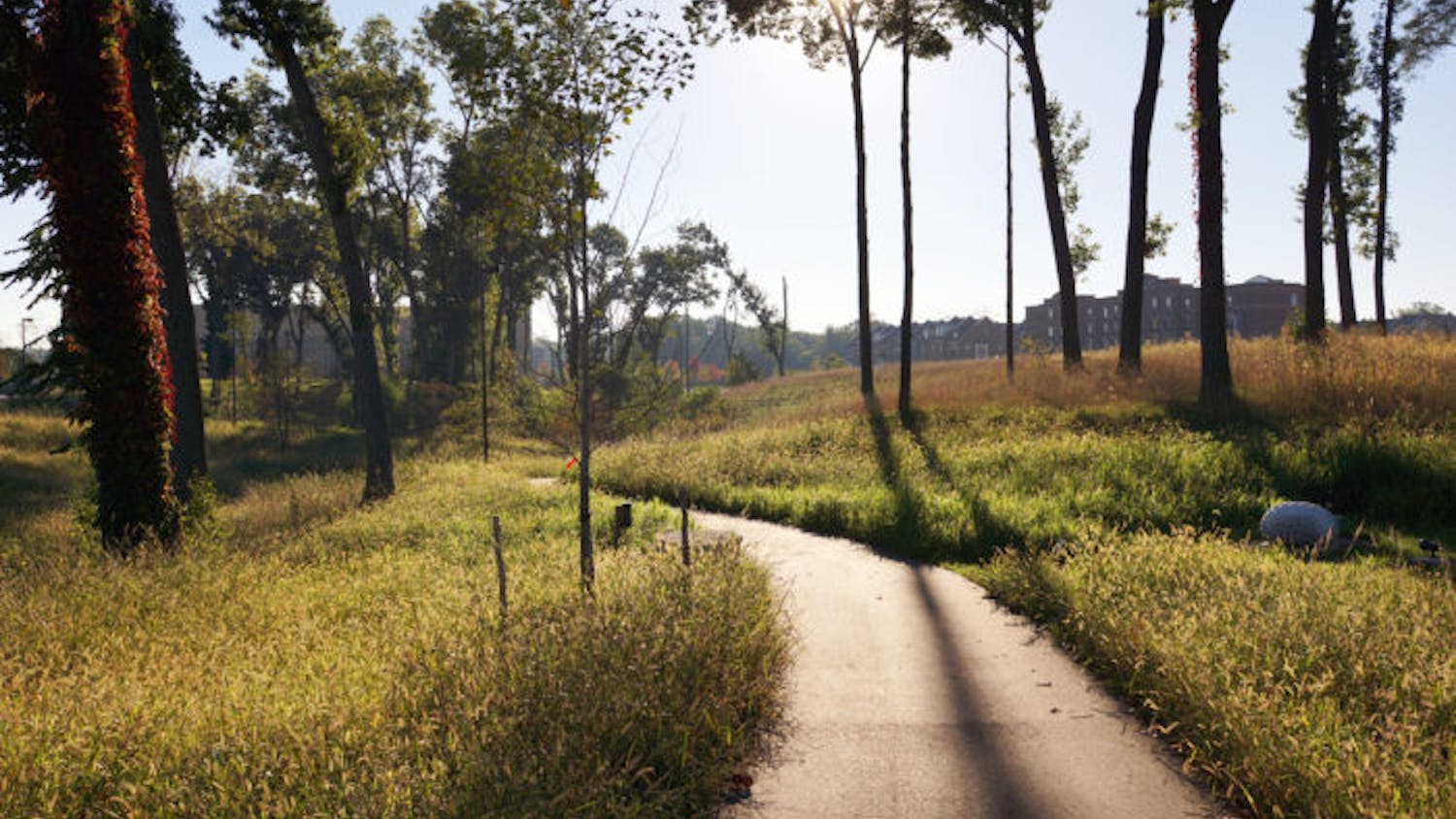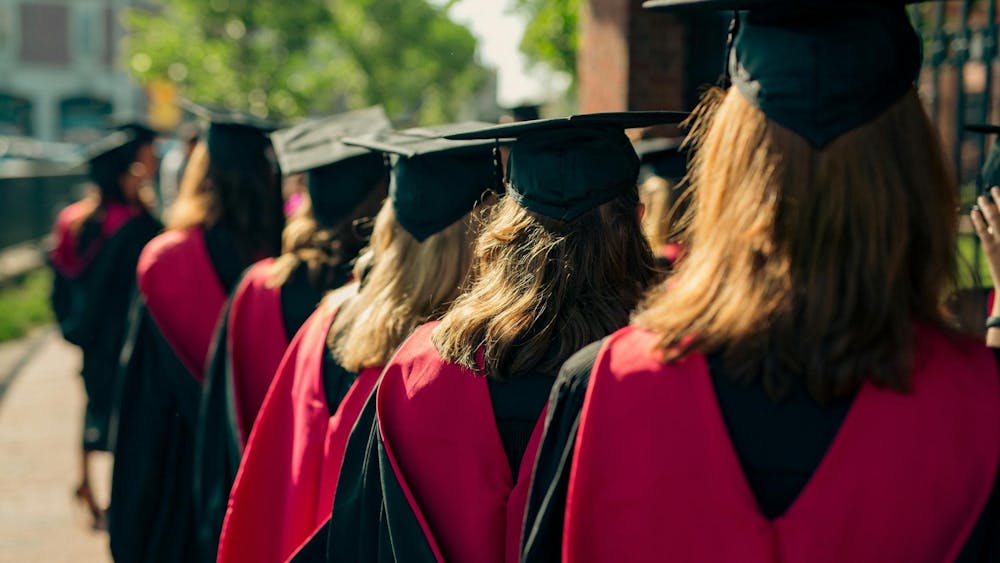Thursday marks not only the 13th anniversary of the Sept. 11, 2001 terrorist attacks, but also one of the last years Notre Dame students, will distinctly and consciously remember the day’s events.
For students from New York City, those memories are particularly vivid.
Freshman Jessica Cioffi’s father, Joseph, is a Captain with Engine 247 of the New York City Fire Department, and will soon be promoted to Chief, she said. Cioffi, who is from Staten Island, said Sept. 11, 2001 began much like any other school day, but quickly became confusing and frightening.
“I was in school that day, and I didn’t really know what was going on, of course, but everyone started freaking out all of a sudden,” she said. “My dad is a firefighter with the New York City Fire Department, so he was on call that day. What happened is my mom ended up picking me up from school and taking me home.
“My dad didn’t come home for three days. He was missing and he was in the rubble. He was trying to find survivors. [He did] a lot of first aid response, trying to help people. It was a really scary time because being so young and innocent, I would ask a bunch of questions like ‘Where’s dad, when’s he coming home?’ And then my mom would burst into tears because she didn’t have the answers.
“I remember when my dad called back to let us know that he was okay, that he was safe. It was a very short call, but my mom started crying again. It was just good to know he was safe.”
Junior Laura Anderson, who lives in Westchester County, just north of Manhattan, said she recalled a feeling of safety and calm in school despite the turbulent events of the day.
“I have very vivid memories of sitting in my first grade class and having my teacher called out in the hallway, and when she came back in she was very obviously upset, her eyes were red from crying,” Anderson said. “As a first grader, I was very confused. Really shortly after that, a ton of parents started coming in and picking up kids. It got to the point at about 10:30 in the morning or so, I think we only had five children left in the classroom.
“My teacher used to put on music and dance with us, and on this day when only five of us were left in class, she still tried to keep that sense of normalcy and she put on music and we were waltzing around. I just remember feeling that something was wrong but feeling that I was really safe because everyone was doing a really good job protecting us.”
Junior Amber Thomas, whose father is a New York City police officer, said people's moods and the constant television coverage made her realize the gravity of the situation, even at a young age.
“I knew something happened where all the firefighters and police officers were needed,” Thomas said. “My mom was very anxious and I wasn’t used to seeing her like that.
“I remember going home and watching TV and all they kept replaying was this building getting hit by this airplane. It felt like they were playing it on a loop for hours. It was the only thing I saw that day. My mom was on the phone constantly, talking to family members.”
Junior Chris Filos, who lives in Scarsdale, north of Manhattan, was home sick from school on Sept. 11, and said he particularly remembered his mother’s anxiety because his father worked in Manhattan.
“I was always very good at understanding when something important was going on, when something serious was happening, so I didn’t necessarily know the nature of what was going on, but I knew it was something important,” he said.
“My mom kind of forced me into another room. … She shut the door on me because she didn’t want me to see the TV. My mom was really emotionally distressed and frazzled because my dad actually worked in the World Trade Center complex, not in one of the two buildings, but it one of the buildings across the street. Obviously it was impossible to get in touch with anyone that day because all the cell towers were clogged up, so [my mom] had no idea where he was. … Eventually, my dad did come home. … He was covered in a little bit of dust.”
Sophomore Julia Kim, who lives in Queens and went to a high school a few blocks from Ground Zero, said the lack of transportation and communication on Sept. 11 only added to the confusion and fear.
“Because we were on such high alert, I think you weren’t allowed to take the trains,” she said. “I know some people walked from Manhattan across the bridges. It was a commute that would usually take you 30 minutes had to be walked. None of the phones were working because so many people were using them at the same time.”
In the aftermath of the attacks, Anderson said the entire New York community, including school children, mobilized to aid in the recovery effort.
“The fact that people kicked in so quickly is amazing,” she said. “The next day, we started making bag lunches to send down to the rescue workers. We were making little boots for the [rescue] dogs because their feet were getting cut and charred.
“I think it was really striking to see how people kicked into action so quickly. Almost everything became about ‘How can we help?’ Even the littlest kids [helped]. We were in first grade and we were bagging lunches. All the children were given jobs to help because it allowed us to feel like we were contributing and not just being pushed out and told ‘Don’t watch.’”
Cioffi said her father returned to Ground Zero to help with the cleanup for about six months after the attacks.
Junior Rachael Biscocho, who lives on Staten Island, said annual remembrances are a special time in New York, where most people were somehow directly affected by the attacks.
“On Staten Island especially, I feel like there’s a lot of people who have family members on the police force or in the fire department, and those are some of the greatest casualties from 9/11,” Biscocho said. “So everyone knew at least one person who had been affected by it.”
“I love how everyone comes together on that day, though. We all are there to support each other in a time of remembrance.”
Coming from an FDNY family, Cioffi said the attacks affected a lot of friends and family.
“Because I was brought up with the fire department, I knew a lot of people, people I considered my uncles and other fatherly figures to me, some of whom perished and some of whom got sick afterwards,” she said. “It affects a lot of people more than you think it would.”
As he has grown up, Filos said the memories of Sept. 11 become less and less frequent, but he still wants to share his experience to help others better understand the impact of the attacks.
“I don’t want to say it’s something I think about often, because it’s not,” he said. “But every once in a while, something sparks a memory and I’ll think about it and reflect on it for a couple of minutes.”
“I always enjoy talking about it with people who weren’t there and don’t have those personal experiences, so they can get a better understanding of what it was like to be there and know people who were involved.”
Cioffi said the attacks gave her a better appreciation for first responders, like her father.
“It makes you appreciate what people do,” she said. “My dad puts his life on the line every time he goes to work, and I was never fully able to realize that until I learned more about the events. Being so young, I never really understood, but as I grew up I was able to learn more about it and appreciate what he does everyday.”
Thomas said the memories of the day have stayed with her, and likely will forever.
“As I’ve gotten older, it’s always very there. I don’t know how to describe it,” she said. “It’s definitely one of those things where I will never not remember where I was, even though I was 6.”
Anderson said the 9/11 attacks have remained an emotional topic, but something people must talk about in order to honor and remember those who died.
“Our schools knew this was going to be something that would affect us, so they talked to us about it,” she said. “When you’re at the point where so many of your friends’ families are directly affected … I think they did a good job giving us the resources to be okay and to feel alright, but still making us very aware that we could still help. It was an important thing; we couldn’t just push it aside. We had to do something about it. We had to remember.”













